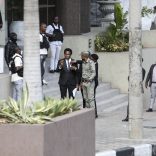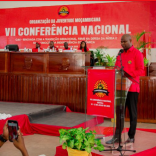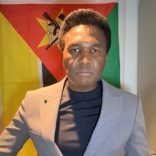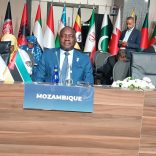Mozambique: Mondlane charged with "incitement to terrorism" - AIM report
Zambezia: Civil society and politicians question new decentralisation law

New Electoral Law was under discussion this Thursday in Quelimane, Zambézia. Photo: DW
Critics say that governors will be mere figureheads because of constraints in making administrative decisions. Public hearings on the subject have been held in all Mozambican provinces.
Members of civil society and political parties in the province of Zambézia have challenged the new decentralisation law which comes into force in Mozambique this year following the revision of the constitution within the framework of the dialogue between the Government and Renamo.
They say that the provincial governors elected in October will just be figureheads because of restrictions in administrative decision making, according to the proposed electoral legislation that will be discussed by the Mozambican parliament.
The theme was under discussion in the city of Quelimane in Zambézia this Thursday.
Several participants at the meeting expressed dissatisfaction with some of the decentralisation proposals, particularly as regards the power of the President of the Republic over the provincial governor.
“Governor will not have an active voice”
The law foresees the presence of representatives of the central power in all the provinces alongside the governors-elect.
“From 1975 until today we have never had two presidents, one of the republic and one of the party. In the provinces there has always been a governor. Nowadays, when one speaks about a representative of the state next to the governor, I am scared, because I think the measure will limit the governor’s functions,” Alvaro Salema, a Renamo member in Quelimane says. He believes that the governor “will not have an active voice in the matter”, and wants an elected governor “to exercise the functions with all autonomy and according to the law”.

According to academic Gildo Assane, “the assembly can dismiss the governor, but in return we do not see here the action of the governor in the face of the decisions of the provincial assembly”. Assane argues that this issue should be discussed and clarified, “otherwise we will have a governor without power to decide, that is, we will have a figure to simply watch over the spectacle of the provincial assembly”.
The question of the exploitation of mineral resources, seas and deep waters, which is not the responsibility of the governor but of the central government, calls into question the equitable distribution of the wealth among provinces, Renamo’s Jonatham Suleimane. stressed. “If the central government decides, we will be harmed, and I believe that there could be serious conflict,” he said.
Provincial Assembly will have more power
But for Lucas Chomera Geremias, head of the Public Administration and Local Power Commission of the Assembly of the Republic, the current law is clear because with its adoption “the Provincial Assembly becomes very powerful, and can dismiss the governor if he violates established rules. As a result, “there will be no abuse of power as has sometimes occurred”, he says.
In an interview with DW Africa, MDM deputy José de Sousa does not criticise the new decentralisation law but regrets that “since the beginning of the agreements between Renamo and Frelimo”, when it was necessary to revise the constitution, “a lot was done off the cuff”.
“These legal instruments are not easy to interpret, especially for our society. In future, we must have all the information and documentation in advance, so that everyone can become familiar with them,” he argues.












Leave a Reply
Be the First to Comment!
You must be logged in to post a comment.
You must be logged in to post a comment.